Question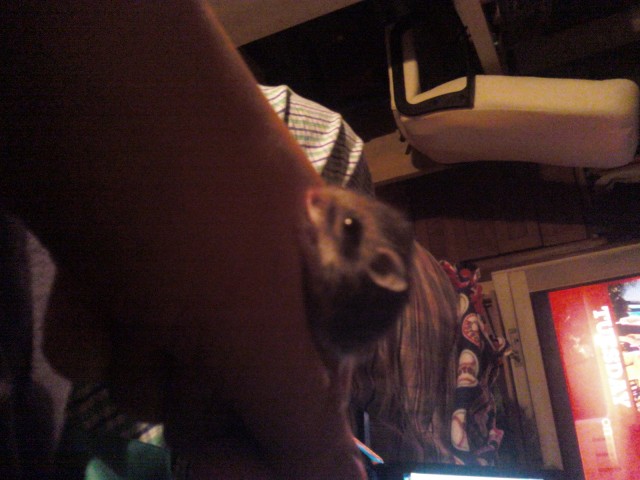 Baby mouse
Baby mouse
QUESTION: Hi, my fiance found an orphaned baby mouse today in the garage. The mother was killed when he cleaned out his tow truck door. They apparently used it as a home while it was sitting in the yard. He was the only one that survived. He has fur, his eyes are open and he has eaten pieces of a cracker. Tomorrow I will go to the pet store and get food. I reviewed your previous posts and he is in a warm box with bedding and water. My question is about disease. What are the risks of taking in a baby mouse into the home? I worked at a vet hospital so I have rescued kittens and puppies but no mice. He is so little and just the cold from the floor of the garage made him lethargic. Thats where we found him. I feel cruel to let him out in the cold. It is ok to take in a wild mouse? Hes actually quite sweet and trusting. I justified picking him up because I had my rabies shot. lol Thank you very much for your help.
ANSWER: Dear Marie,
There is one dangerous disease that some field mice can carry but it is quite rare. That is the hantavirus. About 10 people a year get hantavirus in the US- and some sometimes die. It is primarily developed after breathing in lots of dried mouse urine and droppings when cleaning out an infested barn or basement. It hasn't turned up all over the country; most of the cases have been in the four corners states. It is a serious illness, and if severe flu symptoms develop within 4 weeks of handling a wild mouse, it's a good idea to mention it to your doctor. I have been trying to find out if anyone has ever caught it from a single mouse and have found no data. I do know that mother mice don't give it to their babies in utero or in the milk, so the chances of a little guy having it are exceedingly rare. I myself don't worry about it, but I would be remiss not to mention it. But to be sure, don't breathe in close to the cage when you clean it.
squeaks,
Natasha
---------- FOLLOW-UP ----------
QUESTION: Hi, well followup is he made it through he night. He is certainly more peppy now then yesterday. He tried to chew through the container he is in. Since we are taking care of him will he be able to be released later or is he going to die? Is there anyway to be sure he is free from infection if we do keep him? Also I read that he will die in captivity due to being a wild animal and not being free. Have you ever taken in a baby mouse from outside? Once again thank you so much for all your help.
ANSWER: Dear Marie,
It is possible to have a mouse tested for some diseases by a vet, though it may be quite expensive.
Wild mice don't die in captivity but they can be very unhappy. The test is whether or not he spends his energy trying to get out of the cage, especially when you open it. Any mouse needs a wheel of course, but for a wild mouse who is born to be free, that often isn't enough. Wild mouse babies found as infant pups can grow up to be terrific pets, and your guy might be young enough for this to happen. However, he has already shown some desire not to be held captive.
My advice is to put him in a cage and see how he does. If he lets you hold him you are doing great. Even if he is too shy, if he seems happy in the cage that's good too. If he really seems to want to escape, though, the kindest thing is to keep him a week or so to build up his strength and either let him go if it isn't too cold, or keep him till it's a little warmer out and then let him go.
Although all mice have a smaller chance of surviving very long in the wild, most wild mice prefer a short, happy life to a long one where they yearn to be free, even though we know they won't have the food supply and safety that we can give them. Any mouse with any disadvantage has slightly less of a chance, so it is good that you rescued him from his difficult start. If you let him go, the best way to give him an advantage is to bring him someplace where there is plenty of shelter like a forest or meadow, and leave him a pile of mouse food and possibly even a little cardboard box with his bedding, if you can. You can even put him in the box with bedding and food and just cut a mouse-sized hole in it, and leave him like that. You can pick up the box in a week or so when he will have moved out, so as not to litter.
Of course what he would like best is to live in your house with you! But the problem with that, even if you don't have a larger pet and don't mind a few mouse poops, is if he is a she and decides to raise a family!
squeaks,
Natasha
---------- FOLLOW-UP ----------
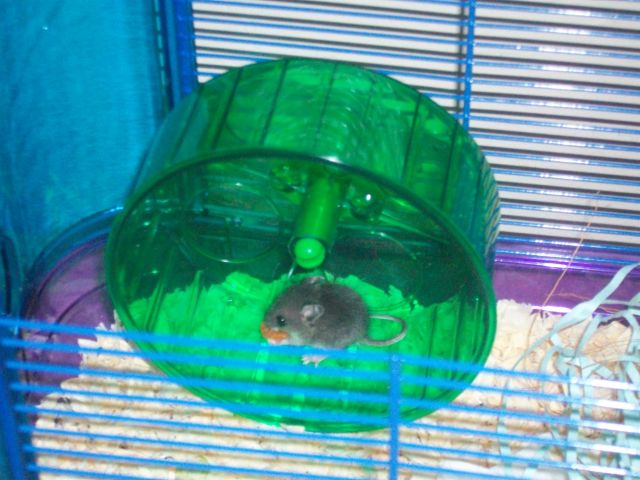 Scrappy with treat
Scrappy with treat
QUESTION: Hi Natasha,
Thank you so much for all of your help. It has been wonderful. We have decided that if things continue the way they are going we will keep the baby mouse, we named him scrappy. He loves his cage, and he has eaten a treat from me with sun butter. My son is allergic to peanut butter so its sunflower butter. He is very jumpy since he is feeling better, so we are taking it slow, and calm around him. No loud noises ect. Is there anything else I can do to get him to trust me? I attached a photo of him enjoying his treat.
AnswerDear Marie,
Scrappy is simply adorable! And he looks happy too. The ways to tame a mouse are to get it used to your presence and to give it food. Here's one way to go about it. These steps may take days or weeks:
1. Place your hand in the cage and don't move it for five minutes, whether he comes to it or not. Don't try to pick him up.
2. Take a morsel of something yummy in your fingertips and place it as close to him as he will let you get. Slowly remove your hand.
3. Hold a morsel in your fingertips and keep your hand in the cage till he comes and gets it, or for three minutes. If he never comes for it, work on #1 and #2 for a while yet.
4. When he will take the morsel from your fingers, place it a little farther on your fingers towards your palm, so he slowly has to place one, two, and eventually all four feet on your hand. DON'T MOVE YOUR HAND YET. Keep it perfectly still.
5. When he has gotten used to walking onto your still hand, while he is on your hand, lift it slowly just a few inches and place it back down again. This way he will get used to the motion and learn that nothing terrible happens. Gradually lift it higher and hold it up for longer until he is comfortable being picked up out of the cage.
This may take patience and time, or he might just decide to trust you right away.
Have fun and keep me posted!
squeaks n giggles,
Natasha



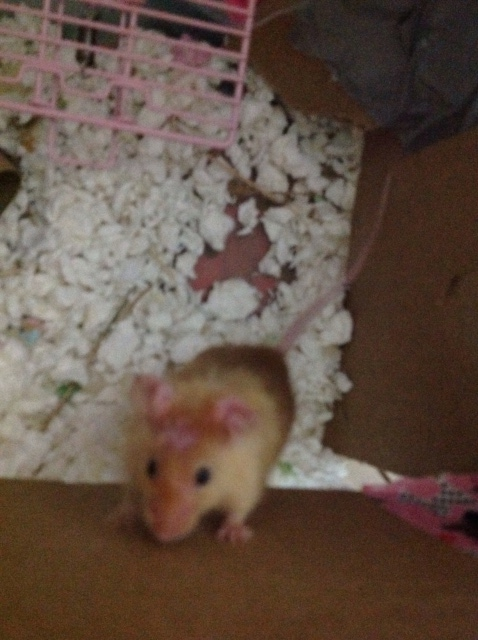 Little Rum (mouse)
Question
Little Rum Little Rum
Hi Natasha
Little Rum (mouse)
Question
Little Rum Little Rum
Hi Natasha
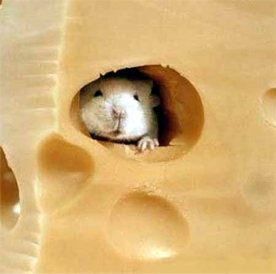 respiratory infection in mouse colony
Question
Heres looking at you
Hi Natasha,
I raise rats
respiratory infection in mouse colony
Question
Heres looking at you
Hi Natasha,
I raise rats
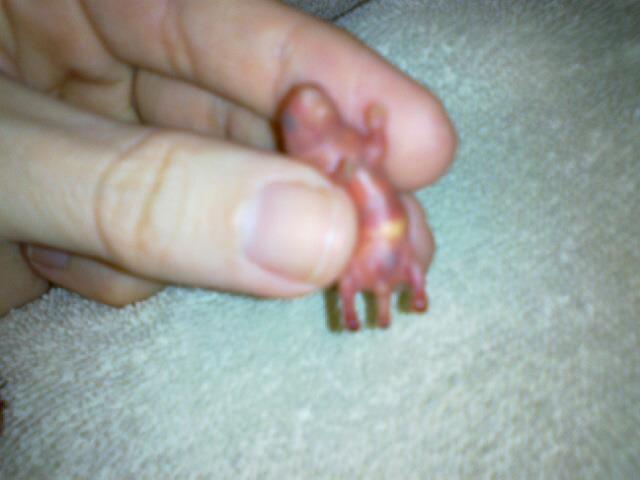 Handicapped mouse pups
Question
BABY MOUSE
I have been breeding mice fo
Handicapped mouse pups
Question
BABY MOUSE
I have been breeding mice fo
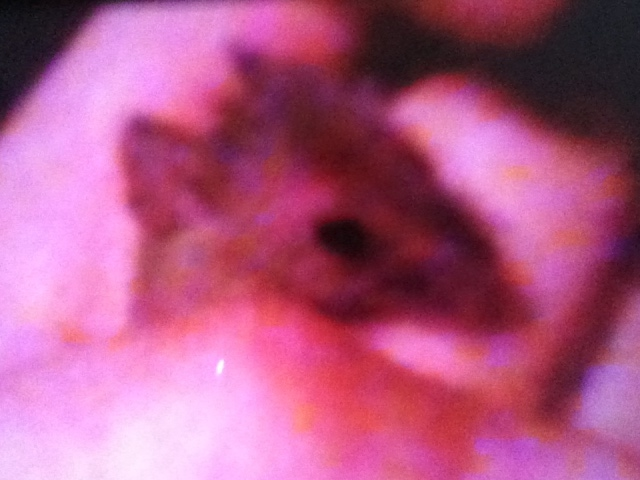 Dont split up rats
QuestionQUESTION: Dear natasha,
I have completely
Dont split up rats
QuestionQUESTION: Dear natasha,
I have completely
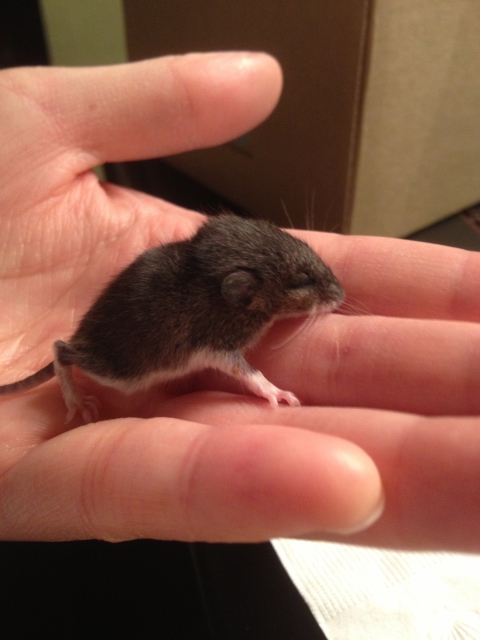 baby mice sick?
QuestionQUESTION: Hello,
My husband and I recently fou
baby mice sick?
QuestionQUESTION: Hello,
My husband and I recently fou